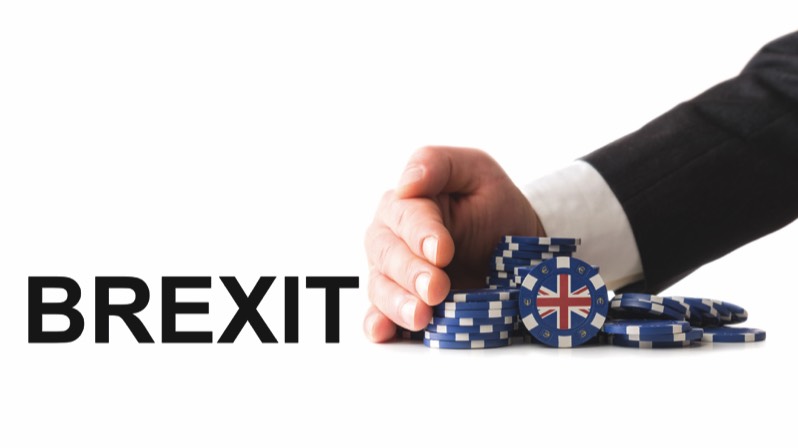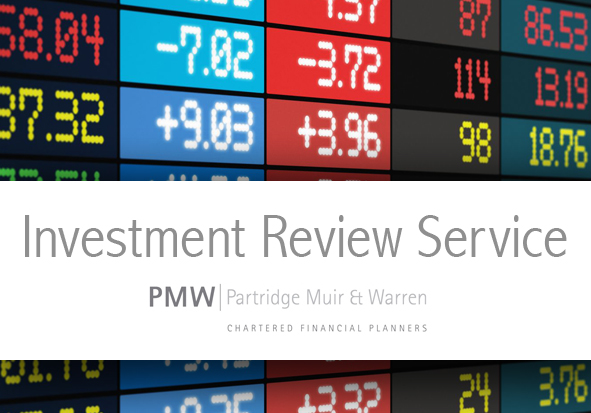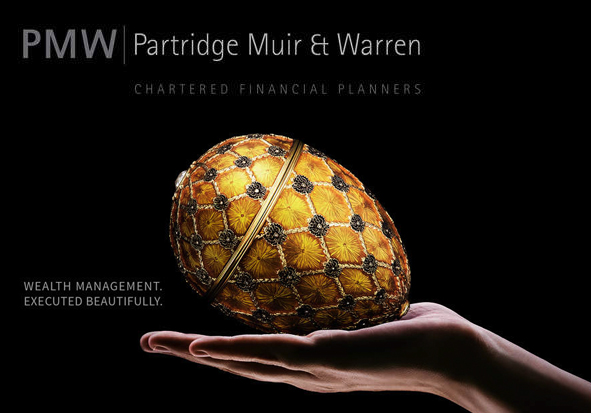FINANCE
Surrey’s Premier Lifestyle Magazine
High Stakes for Brexit Gamble
On 23 June we will be asked to cast our vote on whether the UK should remain within or leave the European Union. Simon Lewis, CEO at Partridge Muir & Warren Ltd, begins to take a look at the economic issues we need to consider before we make our choice about whether to go it alone.

On paper the European Union (EU) is such a good idea. A liberal democracy with a population of 500 million providing the economic benefit and global influence that comes from scale and uniformity. The problem is that in many ways the EU is neither liberal nor democratic and more recently, far from providing economic vigour through uniformity, competing internal dynamics have encouraged procrastination and economic stagnation.
Nearly 20 years ago I spent a few days
at the European Parliament as part of a Department of Trade and Industry trip for young entrepreneurs. We were granted a privileged level of access and I travelled there with a sense of excitement, only to return disillusioned. I was startled by the scale of self indulgent largesse and the evident waste of European taxpayers’ hard earned money.
I lost count of the number of champagne receptions I walked past, the number of idle interpreters at the European Parliament and the amount of parliamentary time wasted bickering about procedural issues rather then matters of substance. I was particularly disconcerted by how far removed the bubble of the Brussels elite was from the real world and somewhat perturbed that they often only described themselves as ‘Europeans’ and were somewhat disdainful of national identity.
Nearly 20 years ago I spent a few days
at the European Parliament as part of a Department of Trade and Industry trip for young entrepreneurs. We were granted a privileged level of access and I travelled there with a sense of excitement, only to return disillusioned. I was startled by the scale of self indulgent largesse and the evident waste of European taxpayers’ hard earned money.
I lost count of the number of champagne receptions I walked past, the number of idle interpreters at the European Parliament and the amount of parliamentary time wasted bickering about procedural issues rather then matters of substance. I was particularly disconcerted by how far removed the bubble of the Brussels elite was from the real world and somewhat perturbed that they often only described themselves as ‘Europeans’ and were somewhat disdainful of national identity.
"The global economy is not growing enough to achieve the improvements in prosperity that encourage peace and stability. In such circumstances, nationalism and protectionism are likely to thrive.”
You might be thinking that I am a Eurosceptic poised to vote leave but the truth is I haven’t yet made up my mind. I am certainly sceptical about European institutions and believe that there is far too much cronyism and corruption. However, I also believe in the economic benefit of being part of the EU, provided that doesn’t require us to surrender our national identity.
Over the next few months I shall continue to sift through the economic evidence and hopefully filter out some of the propaganda and scare-mongering that is a feature of both sides of the public debate. I can then make an informed choice and hopefully choose correctly from the perspective of my children and their future because this decision is likely to have a more profound effect on how the UK will fare in the longer term.
I have unearthed some interesting facts that have kick started my own thought process. I shall cover some in this article although the subject is so broad that I will need to revisit it later.
Trade, Wealth and Influence
The long term prosperity of the UK will be largely influenced by its ability to trade freely with the rest of the world. At present approximately 50% of the UK’s goods exports are to the EU and a further 13% are to countries where there is reliance upon their free trade agreement with the EU. In other words, 63% of the UK’s goods exports are linked to membership of the EU. Contrast this with the fact that the UK receives less than 10% of the EU’s exports. In other words, from the perspective of trade, it would seem that the UK is more dependant on Europe than Europe is dependant on the UK.
It is certainly true that an independent UK would be free to negotiate its own trade deals with the EU but if we wanted full access to the single market there would be a price to pay. For example, both Switzerland and Norway are both required to accept the free movement of people and make substantial payments towards the EU budget in order to achieve their special status.
Over the next few months I shall continue to sift through the economic evidence and hopefully filter out some of the propaganda and scare-mongering that is a feature of both sides of the public debate. I can then make an informed choice and hopefully choose correctly from the perspective of my children and their future because this decision is likely to have a more profound effect on how the UK will fare in the longer term.
I have unearthed some interesting facts that have kick started my own thought process. I shall cover some in this article although the subject is so broad that I will need to revisit it later.
Trade, Wealth and Influence
The long term prosperity of the UK will be largely influenced by its ability to trade freely with the rest of the world. At present approximately 50% of the UK’s goods exports are to the EU and a further 13% are to countries where there is reliance upon their free trade agreement with the EU. In other words, 63% of the UK’s goods exports are linked to membership of the EU. Contrast this with the fact that the UK receives less than 10% of the EU’s exports. In other words, from the perspective of trade, it would seem that the UK is more dependant on Europe than Europe is dependant on the UK.
It is certainly true that an independent UK would be free to negotiate its own trade deals with the EU but if we wanted full access to the single market there would be a price to pay. For example, both Switzerland and Norway are both required to accept the free movement of people and make substantial payments towards the EU budget in order to achieve their special status.
"An independent UK would be less able to assert its influence in the world and the EU, our largest trading partner, would be weakened by its absence."
Of course, we would also be free to negotiate trade deals outside the EU and other nations might well find it easier to agree terms with an independent UK than deal with the bureaucracy of Brussels. Nevertheless, we need to be realistic about our commercial appeal with our population of only 85 million potential customers, albeit relatively wealthy ones. Other nations and regional groups are likely to be far more interested in devoting their resources to negotiating access to the EU’s single market of 500 million potential customers.
Another factor is that the goods and services we wished to export to the EU would still need to comply with EU regulations and having left the EU we would have even less influence over how they were developed.
Geopolitics
The global economy is not growing enough to achieve the improvements in prosperity that encourage peace and stability. In such circumstances, nationalism and protectionism are likely to thrive. Donald Trump’s rhetoric on this subject illustrates how the mood might change. An independent UK would be less able to assert its influence in the world and the EU, our largest trading partner, would be weakened by its absence.
Uncertainty for Investors
The lead up to the referendum is likely to create uncertainty for investors and there has already been a slump in sterling’s value. Nevertheless, most of the consequences of Brexit are long term ones so I do not expect stock markets to be particularly affected by the issue over the next few months. I will look at immigration and red tape next time.
Another factor is that the goods and services we wished to export to the EU would still need to comply with EU regulations and having left the EU we would have even less influence over how they were developed.
Geopolitics
The global economy is not growing enough to achieve the improvements in prosperity that encourage peace and stability. In such circumstances, nationalism and protectionism are likely to thrive. Donald Trump’s rhetoric on this subject illustrates how the mood might change. An independent UK would be less able to assert its influence in the world and the EU, our largest trading partner, would be weakened by its absence.
Uncertainty for Investors
The lead up to the referendum is likely to create uncertainty for investors and there has already been a slump in sterling’s value. Nevertheless, most of the consequences of Brexit are long term ones so I do not expect stock markets to be particularly affected by the issue over the next few months. I will look at immigration and red tape next time.
essence info
Simon Lewis is writing on behalf of Partridge Muir & Warren Ltd (PMW), Chartered Financial Planners, based in Esher. The Company has specialised in providing wealth management solutions to private clients for 46 years.Simon is an independent financial adviser, chartered financial planner and chartered fellow of the Chartered Institute for Securities and Investment. The opinions outlined in this article are those of the writer and should not be construed as individual advice. To find out more about financial advice and investment options please contact Simon at Partridge Muir & Warren Ltd. Partridge Muir & Warren Ltd is authorised and regulated by the Financial Conduct Authority.
Telephone: 01372 471 550
Email: simon.lewis@pmw.co.uk
Website: www.pmw.co.uk

